Written by Ronna on November 27, 2012 |
How common leg length differences can go undetected, affecting athletic performance and physical well being.
 Leg length differences in people can lead to abnormal sideways curves in the spine or scoliosis. Screening for scoliosis has been mandated to perform in the middle schools, girls in 7th grade and boys in 8th grade. Unfortunately, according to the Standards for Scoliosis Screening in California Public Schools 2007, a student is referred for a medical screening if the following results are found:
Leg length differences in people can lead to abnormal sideways curves in the spine or scoliosis. Screening for scoliosis has been mandated to perform in the middle schools, girls in 7th grade and boys in 8th grade. Unfortunately, according to the Standards for Scoliosis Screening in California Public Schools 2007, a student is referred for a medical screening if the following results are found:
- More than 1/2″ difference in height of iliac crests when standing.
- Significant shoulder height asymmetry and/or elevated scapula (shoulder blade) of more than 1”.
- Prominence of the thoracic ribs or lumbar (low back) area, but specifically to more than a 7 degree curve or greater than a 10 millimeter hump.
Continue Reading »
Written by Ronna on November 9, 2012 |
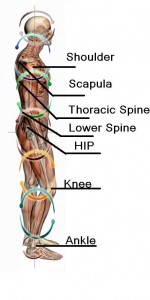 If you have a traumatic injury resulting from one occurance/accident or an over-use injury from multiple repetitions of the same motion, understanding the body’s Mobility-Stability model is crucial for a full recovery. Treating the area of pain may make you feel better, but it will probably not get you better.
If you have a traumatic injury resulting from one occurance/accident or an over-use injury from multiple repetitions of the same motion, understanding the body’s Mobility-Stability model is crucial for a full recovery. Treating the area of pain may make you feel better, but it will probably not get you better.
Each joint in your body is built to move, but some are designed to be more mobile while others function to be more stable. There is a pattern in the human body where a stable joint will have a mobile joint above and below.
Continue Reading »
Written by Janice on October 3, 2012 |
This patient was treated at our 4S Ranch/Rancho Bernardo clinic. The poster was presented this past weekend at the California Physical Therapy Association’s Annual Conference in Santa Clara and will be presented at the Combined Physical Therapy Sections Meeting in January 2013 in San Diego.
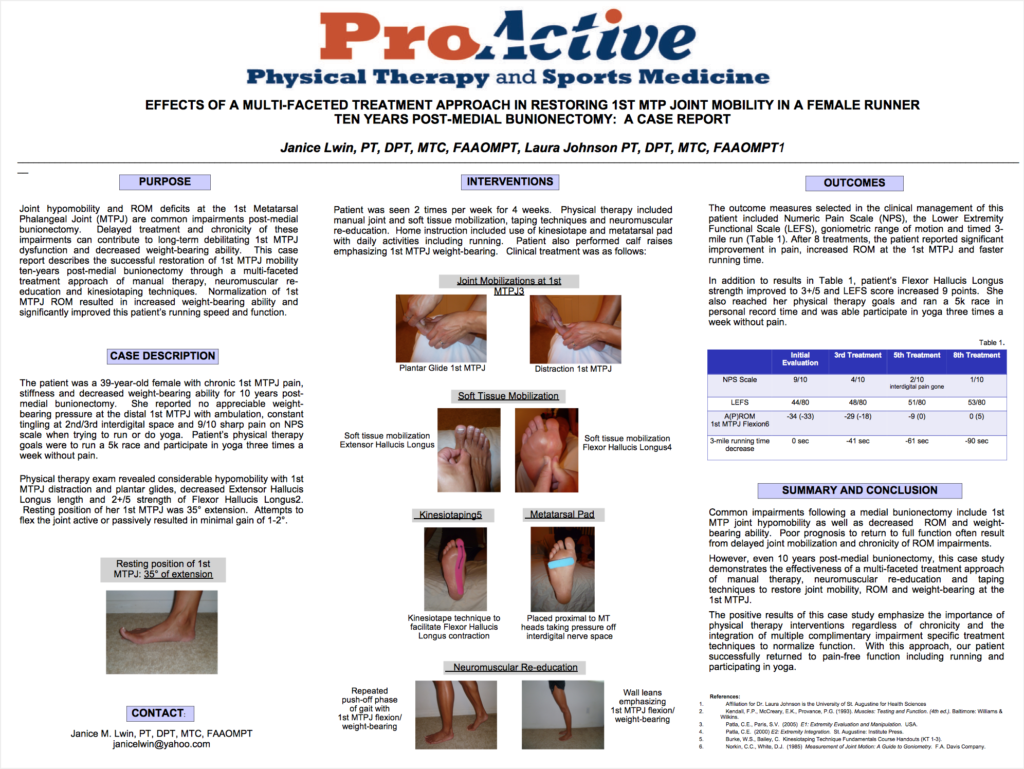

Written by Jon on September 26, 2012 |
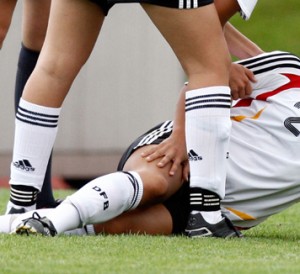 For the past few decades, the number of females participating in sports has increased. In addition, the incidence of female athletes sustaining an anterior cruciate ligament (ACL) tear has also considerably grown. Studies have indicated that ACL injuries are up to 2-8X more common in females than males. The aftermath of an ACL tear is significant physically, mentally, and financially. The average rehabilitation time following an ACL reconstruction is about 9 months.
For the past few decades, the number of females participating in sports has increased. In addition, the incidence of female athletes sustaining an anterior cruciate ligament (ACL) tear has also considerably grown. Studies have indicated that ACL injuries are up to 2-8X more common in females than males. The aftermath of an ACL tear is significant physically, mentally, and financially. The average rehabilitation time following an ACL reconstruction is about 9 months.
Continue Reading »
Written by Jon on September 19, 2012 |
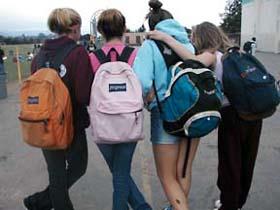
As your children prepare for returning to school, you may be trying to decide what kind of backpack to buy for your child. In this case, “one size” does NOT fit all. So how should you choose? To make an informed decision, parents need to understand how a backpack can affect a child’s posture. When carrying a heavy backpack, a child may compensate by bending forward at the hips and/or arching the back. This increases the compressive forces on the spine and may cause Continue Reading »
Written by Jon on September 14, 2012 |
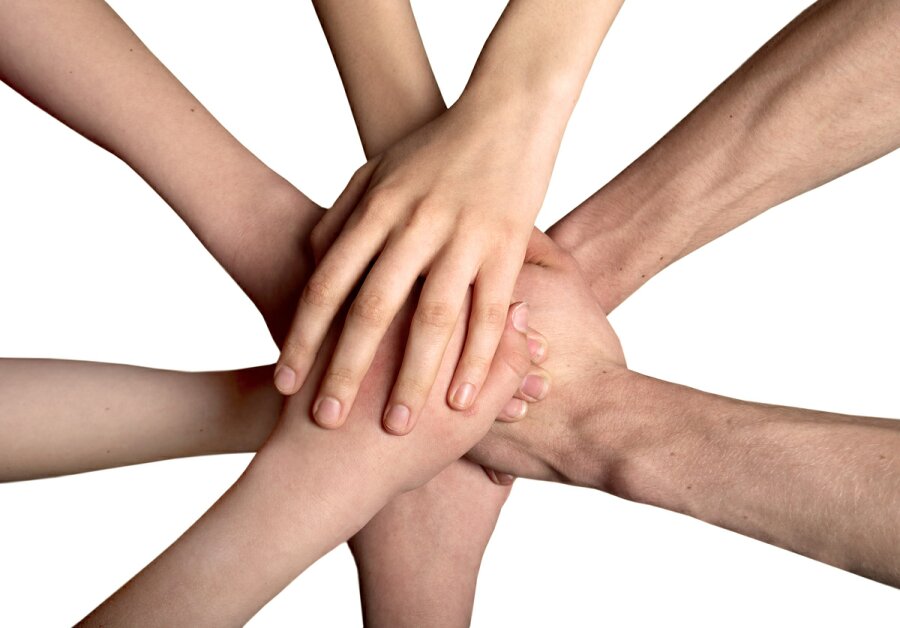
In the last article, we saw an example of how an outpatient orthopaedic physical therapist could utilize their skills outside of the clinical setting. I described my own experience volunteering at a local high school. However, there are numerous other ways for physical therapists to serve their communities. No matter where you live, you can be certain that there will be all types of sports or recreational activities happening close by each weekend. It could be a soccer, lacrosse, volleyball, or basketball tournament. Maybe it’s a 5K “fun run” or holiday bike ride.
Continue Reading »
Written by Jon on August 8, 2012 |
By working closely with the high school’s medical team, a physical therapist can help reduce the risk of injury, increase the safety of the athlete, and ensure the team has the greatest chance of success.
Continue Reading »
Written by Michael on August 3, 2012 |
(This is part 2. If you haven’t already, you can ready part 1.)
The two most important muscles in the human body that protect the spine are the transverse abdominis and the multifidus muscle. The multifidus is a small but powerful muscle in the back that lines the spine as it attaches to adjacent vertebrae. Its main functions are to stabilize the spinal segments while it rotates and extends the back.
Continue Reading »
Written by Michael on July 25, 2012 |
When most people think of their core muscles, they think of six-pack abs and the rectus abdominis. This muscle is the most superficial layer of the abdominals and is the least important “core” muscle other than to look strong. The two most important muscles for a strong core are
Continue Reading »
Written by Michael on July 18, 2012 |
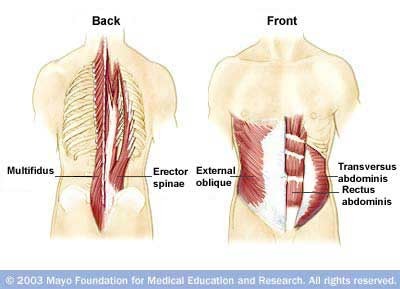
There are a few healthcare professions that you can go to when you have back pain. A licensed physical therapist has the knowledge and training to treat the back and spine with a number of techniques including, but not limited to, manipulation and other manual therapy techniques, strengthening, and educating the patient as to what is causing their pain and what will help eliminate this pain. Studies have shown that these three treatments
Continue Reading »
 Leg length differences in people can lead to abnormal sideways curves in the spine or scoliosis. Screening for scoliosis has been mandated to perform in the middle schools, girls in 7th grade and boys in 8th grade. Unfortunately, according to the Standards for Scoliosis Screening in California Public Schools 2007, a student is referred for a medical screening if the following results are found:
Leg length differences in people can lead to abnormal sideways curves in the spine or scoliosis. Screening for scoliosis has been mandated to perform in the middle schools, girls in 7th grade and boys in 8th grade. Unfortunately, according to the Standards for Scoliosis Screening in California Public Schools 2007, a student is referred for a medical screening if the following results are found:

 If you have a traumatic injury resulting from one occurance/accident or an over-use injury from multiple repetitions of the same motion, understanding the body’s Mobility-Stability model is crucial for a full recovery. Treating the area of pain may make you feel better, but it will probably not get you better.
If you have a traumatic injury resulting from one occurance/accident or an over-use injury from multiple repetitions of the same motion, understanding the body’s Mobility-Stability model is crucial for a full recovery. Treating the area of pain may make you feel better, but it will probably not get you better.

 For the past few decades, the number of females participating in sports has increased. In addition, the incidence of female athletes sustaining an anterior cruciate ligament (ACL) tear has also considerably grown. Studies have indicated that ACL injuries are up to 2-8X more common in females than males. The aftermath of an ACL tear is significant physically, mentally, and financially. The average rehabilitation time following an ACL reconstruction is about 9 months.
For the past few decades, the number of females participating in sports has increased. In addition, the incidence of female athletes sustaining an anterior cruciate ligament (ACL) tear has also considerably grown. Studies have indicated that ACL injuries are up to 2-8X more common in females than males. The aftermath of an ACL tear is significant physically, mentally, and financially. The average rehabilitation time following an ACL reconstruction is about 9 months.

